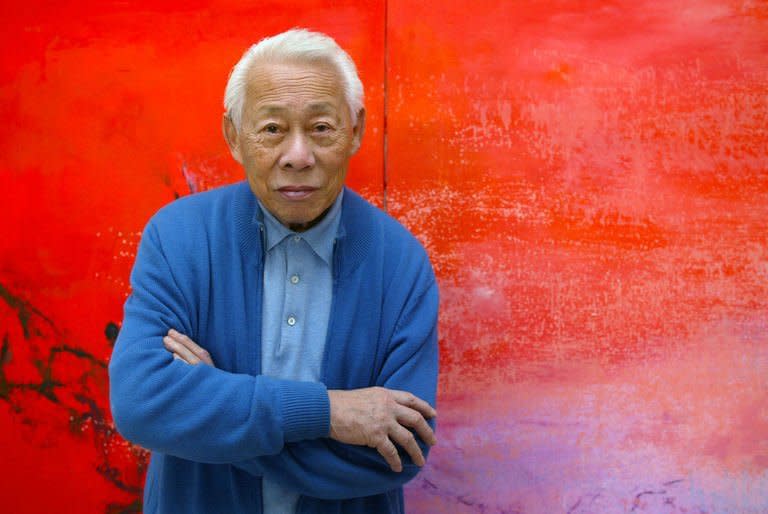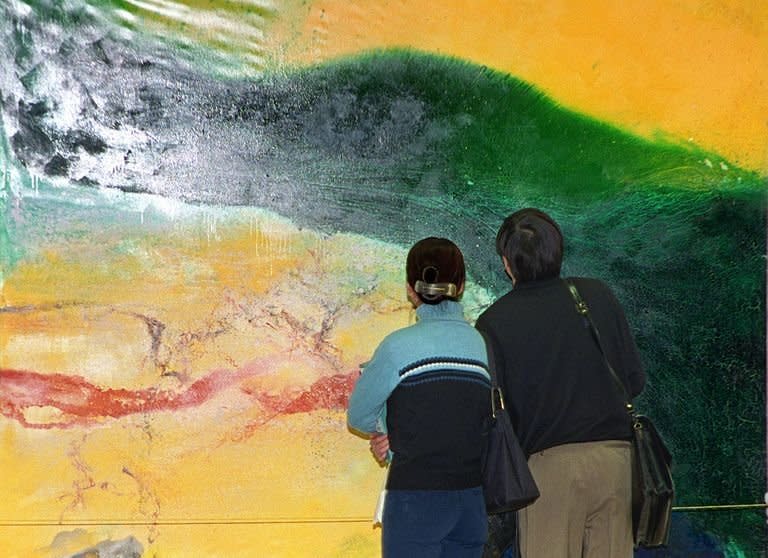Franco-Chinese painter Zao Wou-Ki dies aged 93: lawyers
Chinese-French abstract painter Zao Wou-Ki, a significant figure in 20th-century Chinese art, died Tuesday at his home in Switzerland aged 93, Marc Bonnant, a lawyer for his wife, told AFP. A lawyer for Zao's son, who was in a legal battle with his step-mother to obtain power-of-attorney over the artist, confirmed the death and said Zao, who suffered from Alzheimer's disease, had been hospitalised twice since the end of March. The Beijing-born Zao left China for Paris before the Communist Party took over the country and had been a French citizen since 1964. His works regularly sold at auction for between $1 million and $2.5 million (between 760,000 and 1.9 million euros). His later years were marked by the family feud between his third wife, Francoise Marquet, and his son from a previous marriage, Jia-Ling Zhao. Marquet, a former curator of the Museum of Modern Art in Paris, moved the artist to Switzerland in 2011, saying the country offered the best environment for his health and for preserving his assets. But Zhao asserted the move was part of his step-mother's efforts to control the artist's inheritance, including potentially millions of euros worth of works in his personal collection. The son last month won a victory in the legal battle, with the appointment of two independent guardians who were to carry out an inventory of the artist's possessions. Zhao's lawyer, Jean-Philippe Hugot, said a decision had been taken on Tuesday -- against the wishes of the artist's son but with his wife's consent -- to interrupt Zao's treatment and allow him to die. Born into an educated Beijing family, Zao learned to appreciate art from his grandfather, who had a passion for calligraphy. He decided to become an oil painter and studied at the school of fine arts in Hangzhou from 1941 to 1947, influenced by the works of Picasso and Matisse. He moved to Paris in 1948 and settled in the artistic Montparnasse quarter, eventually landing a job at the School of Fine Arts because of his expertise in traditional Chinese drawing techniques. By the 1960s his art became more abstract and his reputation grew, with exhibitions in New York and other Western capitals, and back in Beijing. Paris hosted major retrospectives of his work in 1981 and 2003. He once said of his work: "What is abstract for you is real for me."



